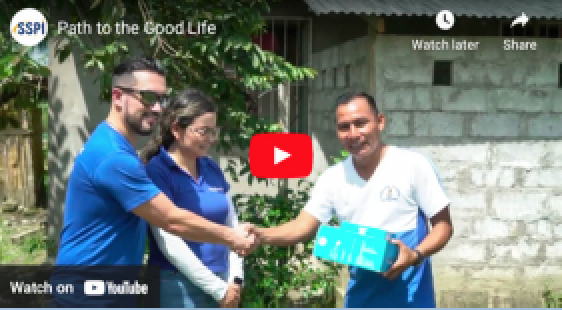On the banks of the Amazon River in Equador lies a village called Puerto Salazar — though small, the village does have a school, and one day Franciso Licuy arrived to be the teacher. He remained one semester short of completing his university studies and it appeared he might not get the chance to do so, as the village had no internet access.
Then a friend told him about something called HughesNet, which could bring him the internet by satellite.
He arranged for an installation and, soon, he was finishing his final semester online — and introducing students to the educational wealth of the World Wide Web
Education Is The Key
For the eight billion people living on planet Earth, in rich countries and in poor, education is the key to a good life.
In the world’s richest nations, the average high school student who drops out before graduating will earn less than half of what a college or university graduate will earn. This gap is even larger in emerging economies. In Peru, for example, a high-school graduate makes only one-third the income of a graduate from university. Without access to the internet, a quality education is difficult to obtain.
In Latin America, broadband reaches only half as many subscribers as it does in North America and Europe. That gap denies students the education they need for today’s jobs and robs businesses of the skilled people their success depends on for success.
Companies, such as Hughes, are doing something about this condition, connecting millions of people to the internet via satellite.
Cities Falling Into The Broadband Gap
Remote villages are not the only locales falling into the broadband gap. Callao is Peru’s main seaport and airport. The town borders Lima, the nation’s capital — but none of its 11 high schools had internet access. Frustrated parents purchased pre-paid cellphones in order for their children to access online services. HughesNet service was installed at each school and that changed everything.
The schools now download educational content to their computers and students and staff connected to it through Wi-Fi. Without the expense of individual internet accounts, the students gained access to 60,000 books on over 25 million topics, refreshed regularly from internet downloads. An identical story is playing out in Mexico, Brazil, Chile and Peru.
Through innovators such as Hughes, the smart use of satellite is bringing schools online that might never have gained access, at a cost that these nations’ governments can afford, and that is bringing the good life closer for billions of people.
Produced for SatNews Magazine by Space & Satellite Professionals International. See more stories and videos of satellite making a better world at www.bettersatelliteworld.com.




